By Treatment
- Panchakarma Treatment
- Liposuction Surgery
- Hepatitis Treatment
- Liver Transplant
- Liver Fibrosis
- Liver Tumor
- Liver Cancer
- Liver Cirrhosis Treatment
- Coronary Artery Bypass Grafting Surgery
- Heart Valve Replacement
- Angioplasty
- Aortic Valve Replacement
- ASD/VSD closure surgery in India
- Cardiac Tumours in Children
- Cardiac Ablation Surgery
- Renal Angiogram
- Cardiac Tumour Treatment
- Pacemaker Implant
- CRT-D Implant
- CRT-P Implant
- Hernia Surgery
- Spine Surgery
- Spine Tumor Surgery
- Spinal Cord Cancer
- Cervical Spine Surgery
- Spinal Fusion Surgery
- Facet Joint Spine Surgery
- Knee Replacement Surgery
- Rhytidoplasty Surgery in India
- Hip Replacement Surgery
- Shoulder Replacement Surgery
- Cataract Surgery
- TAVR (Transcatheter Aortic Valve Replacement) Treatment in India
- Breast lift surgery in India
- Face Lift Surgery
- Rhinoplasty surgery in India
- Yoga and Meditation in India
- Thigh Lift surgery in India
- Breast augmentation
- Robotic Knee and Hip Replacement Surgery
- Mentoplasty Treatment in India
- Naturopathy Treatment in India
- Arthroplasty surgery in India
- Cordotomy Surgery
- Arthroscopy Surgery in India
- Aromatherapy in India
- Macular Degeneration
- Spinal Decompression Surgery
- Penile Implant Surgery in India
- Erectile Dysfunction Treatment in India
- Diabetes cause Impotence Treatment India
- Peyronie's treatment in India
- Urethroplasty Surgery in India
- Artificial Urinary Sphincter Surgery in India
- Shockwave Therapy for Erectile Dysfunction
- Phalloplasty Surgery in India
- Penectomy Surgery India
- Priapism Treatment in India
- Multiple Sclerosis
- Hysteroscopic Surgery
- LEEP (Loop Electrosurgical Excision Procedure) Treatment
- Vaginal Hysterectomy Surgery
- Lasik Eye Surgery
- Laparoscopic Myomectomy
- Glaucoma Treatment in India
- Hysteroscopy Treatment
- Astigmatism Treatment in India
- Corneal Transplant
- Cochlear Transplant
- Dialysis & Kidney Transplant
- Hysteroscopic Myomectomy
- Tympanoplasty Surgery
- Block Dissections of Neck, Endolymphatic Sac in India
- Interstitial Cystitis Treatment
- Total Laparoscopic Hysterectomy (TLH)
- Multiple Scoliosis Surgery
- Myomectomy Treatment
- Stapedectomy Surgery
- Thyroid Cancer Treatment
- Dilation and Curettage
- Trigger Point Injection (TPI)
- Deep Brain Stimulation (DBS)
- Bone Marrow Transplant
- Scoliosis Surgery in India
- Spondylolisthesis Spine Treatment
- Colposcopy
- Ossiculoplasty surgery in India
- Laparoscopic Uterine Suspension Surgery
- Rotator Cuff Tear Surgery
- Laryngectomy Surgery in India
- Micro Laryngeal surgery in India
- Laparoscopic Supracervical Hysterectomy
- Pelvic Laparoscopy Surgery
- Functional Endoscopic Sinus Surgery in India
- Cardiology
- Liver Disease Treatment
- Osteoarthritis Spine Treatment
- Arthrodesis Surgery
- Gallbladder Cancer Treatment
- Pancreatic Cancer Treatment
- Meningiomas Treatment
- Ovarian Cancer Treatment
- Testicular Cancer Treatment
- Anterior Cruciate Ligament (ACL) Surgery
- Bone Marrow Cancer
- Orthopaedics & Joint Replacement
- Degenerative Disk Spine Treatment
- Herniated Disc Spine Treatment
- Neurology and Neurosurgery
- Anal Cancer Treatment
- Kidney Cancer
- Minimally Invasive Spine Surgery
- Bladder Cancer Treatment
- Stomach Cancer Treatment
- Mouth Cancer Treatment
- Bone Cancer Treatment
- Throat Cancer Treatment
- Breast Cancer Treatment
- Chemo Treatment
- Colon Cancer Treatment
- Esophageal Cancer Treatment
- Obstetrics & Gynaecology
- Herniated Disc Surgery
- Aortic Stent Grafting
- Head and Neck Cancer Treatment
- Artificial Spine Lumbar Disc Replacement
- Spine Osteotomy
- Lumbar Laminectomy for Spine or Spinal Decompression
- Lungs Cancer Treatment
- Cancer Treatment
- Breast Surgery
- Cardiothoracic & Vascular Surgery
- Head & Neck Cancers
- Prostate Cancers Treatment
- Neuroscience
- Heart Transplant
- Liver Surgery
- Pediatric Neurosurgery
- Acute Leukemia
- Coronary Angiogram
- End-Stage Liver Disease Treatment
- Peripheral Angioplasty
- Cardiac Resynchronization Treatment
- Radiofrequency Ablation
- Automatic Implantable Cardioverter Defibrillator
- Percutaneous Transvenous Mitral Commissurotomy
- Coronary Angioplasty
- Cerebral Angiogram
- Peripheral Angiogram
- Angiography
- Eyelid Surgery
- TLIF Surgery
- Ear Surgery
- Body Lift Surgery
- Endoscopic Disc surgery
- Endoscopic Cranial Surgery
- Stroke Treatment
- Renal Angioplasty
- Leukemia Treatment
- Peripheral Neuropathy Treatment
- Parkinson’s disease
- Cardiac Catheterization
- Percutaneous Transluminal Angioplasty
- Pericardial Cysts
- Cardiac Arrest Treatment
- Bariatric & Metabolic Surgery
- Deceased Donor Liver Transplant
- Living Donor Liver Transplant
- Electrophysiology Study (EPS)
- Shoulder and Elbow Replacement
- Urology
- Pediatric Heart Surgery
- Cardiac Surgery
- Vascular Surgery
- Endoscopic Surgery
- Pacemaker Implantation
- Urological Oncology
- Alzheimer’s Disease Treatment
- Reconstructive Urology
- Endocrinoly
- Lumbar puncture
- Diabetes Stem Cell Treatment
- Pediatric Liver Transplant
- Endocrine Stem Cell Treatment
- GI surgery
- GI Oncology
- Hemodialysis
- Hemorrhoids Surgery
- Endoscopy
- Gastric Bypass Surgery
- Renal Failure
- Headache
- Kidney Biopsy
- Sleep Disorders
- Craniotomy Surgery
- Atrial Fibrillation Surgery
- Autism - Stem Cell Treatment
- Heart Implants
- Neuropathy
- Robotic Urology
- Blood Clot Brain Surgery
- Laser Urological, Surgery
- Brain Haemorrhage Treatment
- Retinal Surgery
- Laser Eye Surgery
- Heart Valve Disease
- Renal Transplant
- Hematology
- Thalassemia Treatment
- Sports Injury
- Sickle Cell Anemia
- Cosmetic and Plastic Surgery
- Robotic Joint Replacement
- Multiple Myeloma
- Pediatric oncology
- Medical oncology
- Minimal Invasive Brain Surgery
- Open Heart Surgery
- Rheumatology & Clinical Immunology
- Lymphoma
- Neonatology
- Laparoscopic Surgery
- Radiology
- Blood Cancer
- Dermatology and Cosmetology
- Paediatric Cardiology
- IVC Filter Insertion Procedure
- Minimal Access Surgeries
- Paediatric & Adolescent Endocrinology
- Dentistry and Maxillofacial Surgery
- Diabetology
- Interventional Cardiology
- Reconstructive Surgery
- Dietetics and Nutrition
- Oncology
- Radiation Oncolgy
- Aplastic Anemia
- Gynaecology - Oncology
- Brain Tumor Surgery
- Ophthalmology
- Abdominal Surgery
- Haemato Oncology
- Onco-Neurosurgery
- Thoracoscopic surgery
- Acute Leukaemia Treatment
- Kidney Failure Treatment
- Oncology & Oncosurgery
- Hepatobiliary
- Gland Surgery
- Liver Biopsy
- Gastroenterology
- Nephrology
- Interventional Radiology
- Transplant Nephrology
- Urological Cancers
- Neurovascular Surgery
- Internal Medicine
- Kidney Stone
- Heart Surgery
- Radiosurgery
- ENT & Cochlear Implant
- Chronic Liver Disease
- Cosmetic Eye Surgery
- Minimally Invasive Surgery
- Spa therapy Treatment in India
Penile implant surgery, also known as penile prosthesis surgery, is a medical procedure performed to treat erectile dysfunction (ED) in men who have not responded to other treatment options such as medications or vacuum erection devices. In India, this surgery is available at various medical facilities, including specialized urology and sexual health clinics. The placement of penile implants needs surgery. Before selecting penile implants, ensure that you comprehend what surgery involves, containing conceivable risks, complications and follow-up concern.
Why it’s required?
Penile implants are required when men experience erectile dysfunction (ED) that cannot be effectively treated through other means. ED is the consistent inability to achieve or maintain an erection sufficient for sexual intercourse. Several factors can contribute to ED, including physical, psychological, and lifestyle-related causes. Penile implants may be necessary when:
Non-Invasive Treatments Fail: Before considering surgery, healthcare providers typically recommend non-invasive treatments for ED. These may include oral medications (such as Viagra or Cialis), vacuum erection devices, penile injections, or lifestyle modifications. When these options are ineffective or produce intolerable side effects, a penile implant may be considered.
Underlying Medical Conditions: Certain medical conditions can cause ED, such as diabetes, cardiovascular disease, neurological disorders, or prostate cancer treatments. When ED is a result of these underlying conditions and cannot be managed through conservative methods, a penile implant may be a viable solution.
Anatomical Issues: Some men may have anatomical issues affecting blood flow to the penis, which can make achieving and maintaining an erection difficult. Penile implants can bypass these issues by providing a mechanical means to produce an erection.
Psychological Factors: While psychological factors like stress, anxiety, or relationship problems can contribute to ED, penile implants are generally considered when there are clear physical causes. In cases where psychological factors play a predominant role, counseling or psychotherapy may be more appropriate.
Severe ED: Penile implants are typically reserved for men with severe and persistent ED. These individuals may find it impossible to achieve any degree of erection, making sexual intercourse difficult or impossible. In such cases, implants can provide a reliable solution.
Patient Preference: Some men may prefer a more predictable and permanent solution to ED, especially if they find other treatments inconvenient or unsatisfactory. Penile implants offer a reliable means of achieving an erection when desired.
It’s essential to note that penile implants are a last resort for treating ED and should be considered only after thorough evaluation by a urologist. The decision to undergo penile implant surgery should be made carefully, taking into account the potential risks, benefits, and individual circumstances. The type of implant chosen (inflatable or semi-rigid) will depend on the patient’s needs and preferences, as well as the recommendation of their healthcare provider.
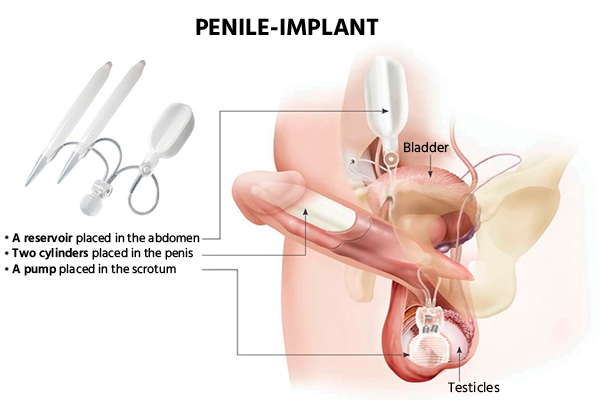
Types of Penile Implants
There are two main types of penile implants, also known as penile prostheses: inflatable penile implants and semi-rigid (malleable) penile implants. The choice between these two types depends on the patient’s specific needs, preferences, and the recommendations of their healthcare provider. Here’s an overview of each type:
Inflatable Penile Implants:
- Two-Piece Inflatable Implant: This type consists of two components: inflatable cylinders that are implanted in the penis and a fluid reservoir placed in the abdomen. A pump is located in the scrotum. To achieve an erection, the patient squeezes the pump several times, which transfers fluid from the reservoir to the cylinders, creating rigidity. To return the penis to a flaccid state, the patient releases a valve typically located near the pump to allow the fluid to return to the reservoir.
- Three-Piece Inflatable Implant: This is the most common type of inflatable implant. It includes three components: inflatable cylinders in the penis, a fluid reservoir in the abdomen, and a pump in the scrotum. Like the two-piece implant, the patient activates the pump to inflate the cylinders, creating an erection. However, the three-piece design often provides a more natural and firm erection compared to the two-piece implant.
- Advantages: Inflatable implants tend to provide a more natural-looking and feeling erection. They can also be deflated, allowing the penis to return to a flaccid state, which can be more discreet. Many men find that inflatable implants offer more flexibility in terms of achieving and maintaining an erection.
- Disadvantages: The surgery to implant inflatable devices is more complex than for semi-rigid implants, and there is a higher risk of mechanical failure. Additionally, there is a learning curve involved in operating the pump effectively.
Semi-Rigid (Malleable) Penile Implants:
These are simple, flexible rods that are surgically implanted into the penis. They remain semi-rigid at all times, allowing the patient to bend the penis into an erect position when needed and return it to a flaccid state when not in use.
- Advantages: Semi-rigid implants are less complex and typically have a lower risk of mechanical failure compared to inflatable implants. They are easier to use, as there is no need to manipulate a pump or valve. Some men find them more convenient for spontaneous sexual activity.
- Disadvantages: The erection provided by a semi-rigid implant may not be as natural-looking or feeling as that of an inflatable implant. Some men may find it challenging to conceal the rigidity when the penis is not in use.
Procedures of Penile Implants
The choice between inflatable and semi-rigid penile implants depends on factors such as the patient’s anatomy, preferences, and the recommendations of their healthcare provider. Ultimately, both types can be effective in restoring sexual function and improving the quality of life for men with erectile dysfunction who have not responded to other treatments. Patients should discuss their options and any concerns with their healthcare provider to make an informed decision.
The procedure for penile implant surgery involves several steps and is typically performed by a urologist or a specialist in sexual medicine. The specific details of the procedure may vary depending on the type of implant being used (inflatable or semi-rigid), but here is a general overview of the steps involved in the surgery:
Preparation
- Consultation: Before the surgery, the patient will have a consultation with their healthcare provider to discuss their medical history, the severity of their erectile dysfunction (ED), and the suitability of a penile implant.
- Anesthesia: The procedure is usually performed under either general anesthesia (where the patient is asleep) or local anesthesia with sedation (where the patient is relaxed but awake).
Surgical Steps for Inflatable Penile Implants
- Incision: The surgeon makes an incision, typically along the side of the penis, to access the corpora cavernosa (the two cylindrical chambers inside the penis that fill with blood during an erection).
- Placement of Cylinders: In the case of inflatable implants, two inflatable cylinders are implanted into the corpora cavernosa. The surgeon carefully positions the cylinders and attaches them to the pump and fluid reservoir components.
- Placement of Reservoir and Pump: A fluid reservoir is typically implanted in the lower abdomen, and the pump is placed in the scrotum. The surgeon connects the reservoir, pump, and cylinders using flexible tubing.
- Testing: The surgical team tests the implant to ensure it functions correctly. They fill the cylinders with sterile fluid and check for any leaks or issues.
Surgical Steps for Semi-Rigid (Malleable) Penile Implants
Similarly, the surgeon makes an incision to access the corpora cavernosa. For semi-rigid implants, malleable rods are inserted into the corpora cavernosa. These rods are typically made of a flexible material like silicone or polyethylene. The surgeon carefully positions the rods to achieve the desired level of rigidity. The rods are bendable, allowing the patient to manually adjust the angle of the erection when needed. Closing the Incision: Once the implant is securely in place, the surgeon closes the incision with sutures or surgical staples.
Postoperative Care
Recovery: The patient is closely monitored in a recovery area to ensure there are no immediate complications. They may stay in the hospital for a day or more, depending on their individual circumstances.
After the surgery, the patient will have follow-up appointments with their healthcare provider to monitor the healing process, ensure the implant is functioning correctly, and address any concerns.
Recovery and Rehabilitation
The patient will receive specific instructions on postoperative care, including wound care, pain management, and how to operate the implant (if applicable).
Resumption of Sexual Activity: Patients typically need to refrain from sexual activity for a few weeks to allow for proper healing. Once cleared by their healthcare provider, they can begin using the implant for sexual activity.
It’s important to note that penile implant surgery is a specialized procedure, and the specific details may vary depending on the surgeon’s approach and the type of implant used. Patients considering this surgery should have a thorough discussion with their healthcare provider to understand the procedure, the expected outcomes, and potential risks and benefits.
Penile Implant Surgery cost in India are as follow
| Treatment | Cost Starts From ($) | Hospital Stay |
| Penile Implant surgery | 2400-6000 | 0-1 Days |
| Erectile Dysfunction | 1500-2000 | 0-1 Days |
| Diabetes cause Impotence | 2000-2500 | 0-1 Days |
| Peyronie’s Treatment | 2000-2500 | 0-1 Days |
| Phalloplasty Surgery | 1500-2000 | 4-5 Days |
| Penectomy Surgery | 3000-3500 | 5-7 Days |
FAQ:
Q. Does the given cost include everything, accommodation food etc.?
A. The package include food and accommodation while the patient is in the hospital. After discharge we would help you find a suitable accommodation that would fit in your budget in a decent place which would be close to the hospital. Cost would be bare by patient if they stay outside the hospital.
Q. How can we reduce the cost of the treatment?
A. The accommodation can be made from single bed to double or more beds sharing. We can give options of lower category of hospitals.
Q. Do you need to pay the amount before coming to India?
A. It is up to you whether you want to pay after or before coming to India. If you willing to pay before coming to India, we will share our online payment details with you.
IMPORTANT NOTE:
- Prices are subject to change or withdrawl with notice
- These are indicative price only and vary depending on the condition of patient, at the time admission.
- We will provide final estimate at the time of patient’s admission
Top Urologist in India for Penile Implant Surgery:
- Dr. Narasimhan Subramanian
- Dr. Mayank Gupta
- Dr. Rajeev Sood
- Dr. Ashish Sabharwal
- Dr. Vineet Malhotra
- Dr. Gautam Banga
- Dr. Raman Tanwar
- Dr. Mayank Gupta
- Dr. Rajesh Taneja
- Dr. Vijayant Govinda Gupta
Need help choosing the right hospital?
Get assistance for your treatment from our experienced care team!

Fortis Escorts Heart Institute, Okhla, New Delhi
With a legacy of over 33 years, Fortis Escorts Heart Institute, New Delhi has established itself as a pioneer in the field of cardiac care, and is recognized for its path-breaking work and services to numerous heart patients. Armed with clinical expertise and cutting-edge technology, Fortis Escorts Heart Institute has enriched numerous lives through its world-class treatment and compassionate patient care. With Padma Shri and Padma Bhushan awardees serving as doctors, the hospital is recognized the world over as a center of excellence, today.
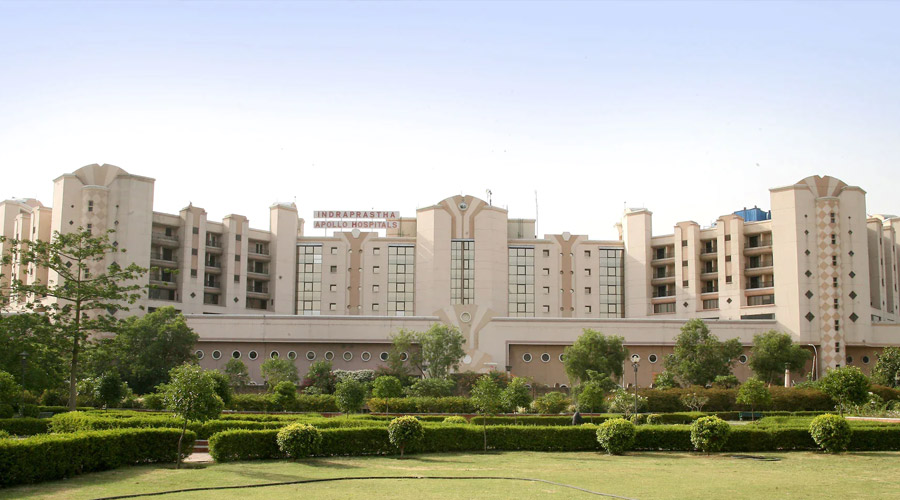
Indraprastha Apollo Hospital, New Delhi
Established in 1996, Indraprastha Apollo Hospital is NABL and JCI accredited. Apollo Group offers 10,000 beds across 64 hospitals, more than 2,200 pharmacies, over 100 primary care & diagnostic clinics and 115 telemedicine units across 9 countries. Indraprastha Apollo Hospital has 52 specialties under one roof.
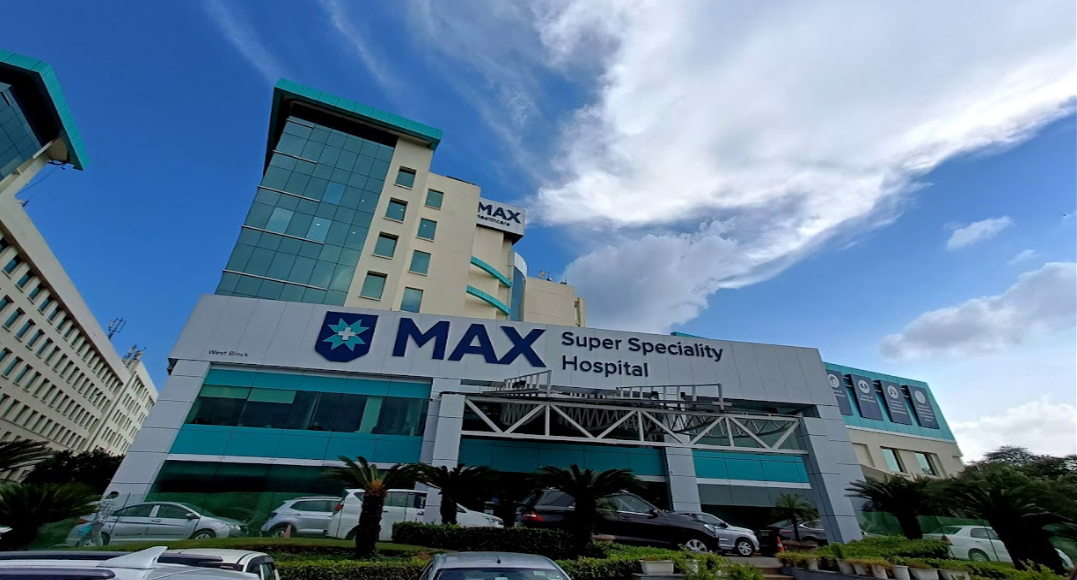
Max Super Speciality Hospital, Saket
Max Super Speciality Hospital Patparganj, Delhi has been one of the top medical care facilities for people living in India as well as internationally. It is home to one of the best speciality treatment centres with the best doctors renowned in India and internationally.
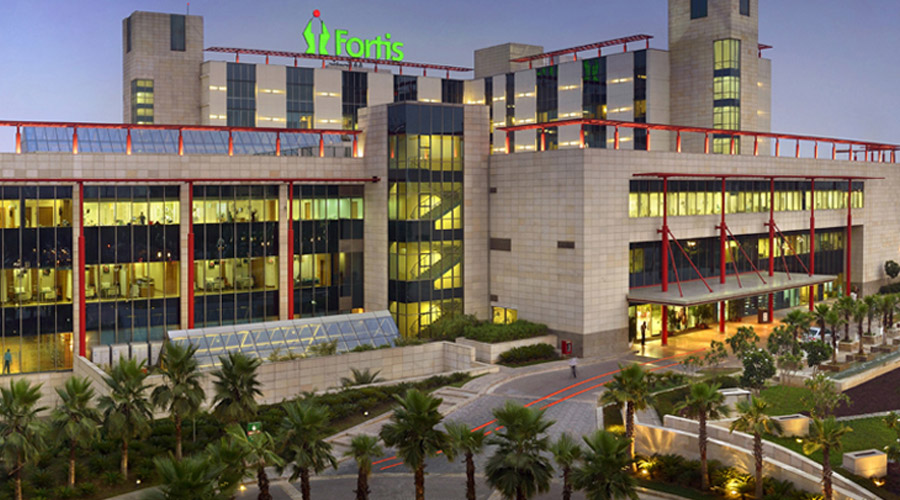
Fortis Memorial Research Institute – Gurugram, NCR Delhi
Fortis Memorial Research Institute (FMRI), a multi-super-specialty, quaternary care hospital, is considered as one of the best hospitals in Gurgaon. Fortis Hospital, Gurgaon, has undergone a thorough on-site review of the quality and safety of care being provided and is committed to continuously meeting rigorous international standards.
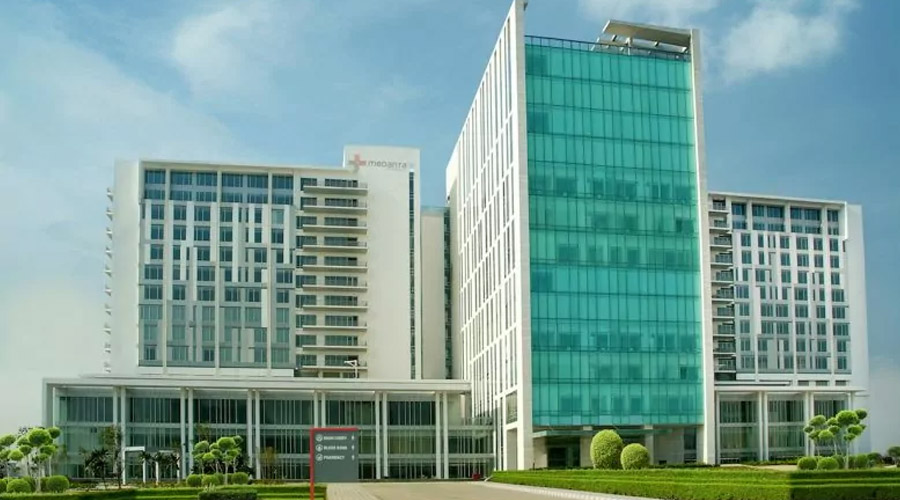
Medanta – Multi-Super Specialty Hospital
Medanta – The Medicity is one of India’s largest multi-super specialty institutes located in Gurgaon, a bustling town in the National Capital Region. Founded by eminent cardiac surgeon, Dr. Naresh Trehan, the institution has been envisioned with the aim of bringing to India the highest standards of medical care along with clinical research, education and training.
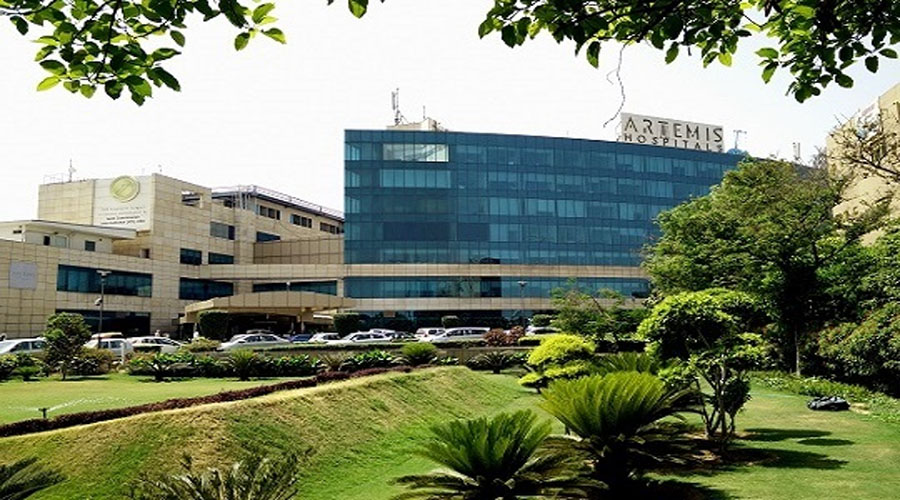
Artemis Hospital – Gurugram, NCR Delhi
Artemis Health Institute, established in 2007, is a healthcare venture launched by the promoters of the Apollo Tyres Group. Artemis is the first Hospital in Gurgaon to get accredited by Joint Commission International (JCI) (in 2013). It is the first Hospital in Haryana to get NABH accreditation within 3 years of start up.
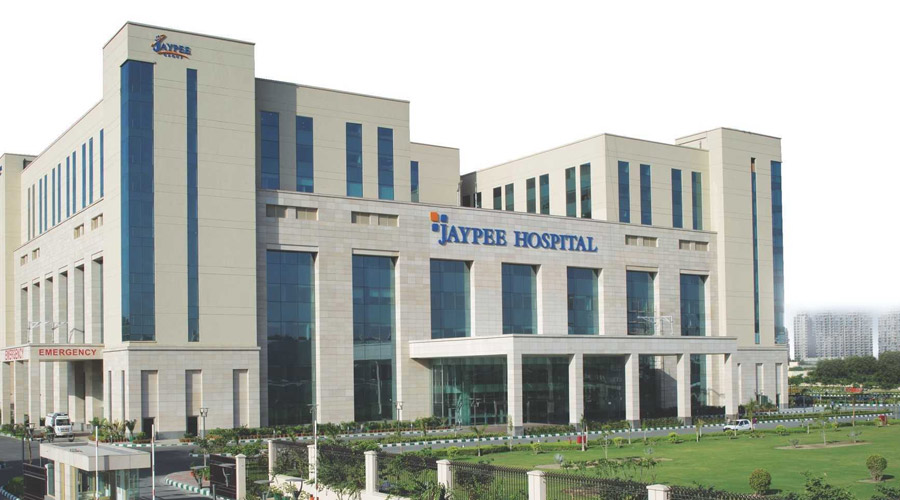
Jaypee Multi-Super Speciality Hospital – Noida
The Jaypee Hospital was conceptualized by our revered Founder Chairman, Shri Jai Prakash Gaur with the vision of promoting world-class healthcare amongst the masses by providing quality and affordable medical care with commitment.
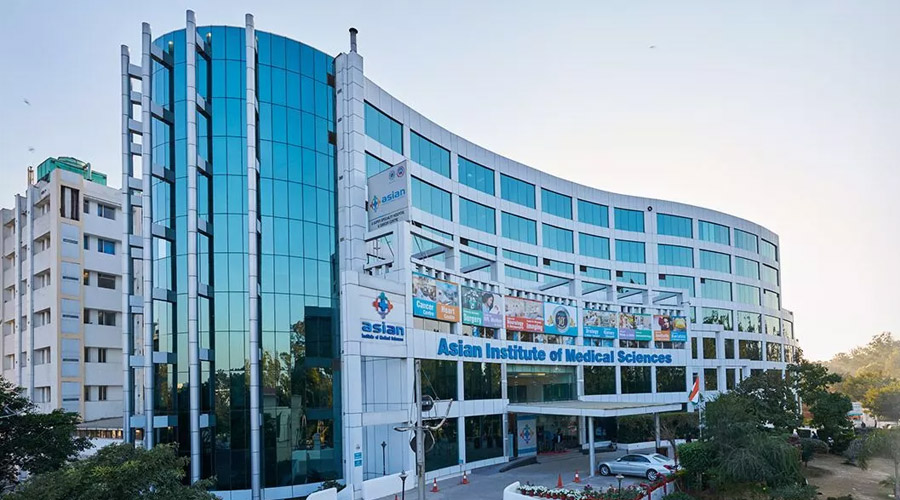
Asian Institute of Medical Sciences
425-bedded super speciality tertiary care hospital is truly futuristic in its services & technology and brings together some of the most talented medical professionals in India. The hospital has been accredited with NABH and NABL accreditations and is equipped with state-of-the-art technology.
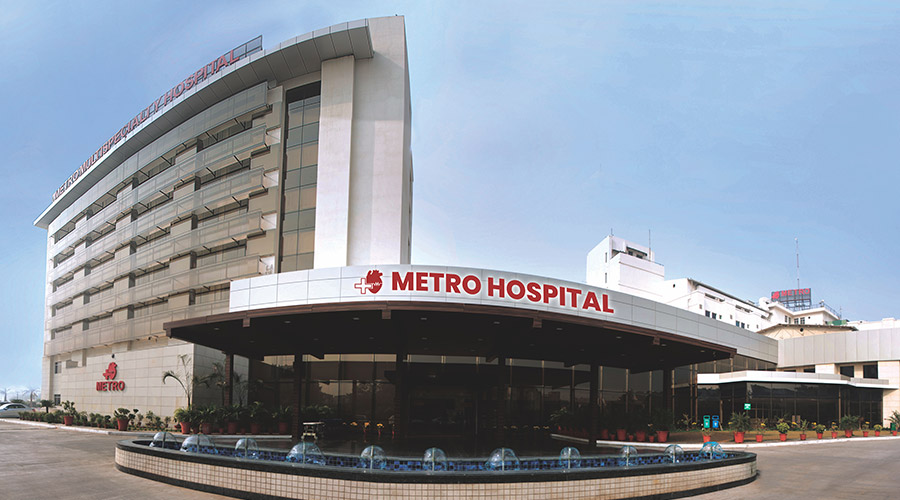
Metro Heart Institute with Multispeciality
Metro Group of Hospitals is a group of 11 hospitals and 1 college (Metro College of Health Sciences and Research), having more than 2500 beds flourishing hospitals and leading one of the biggest group of hospitals in India.

QRG Super Speciality Hospital
QRG Super Speciality Hospital isn’t just another hospital but an amalgamation of the best services the healthcare segment can offer. Our excellent medical infrastructure houses a Critical Care Medicine unit for patients with life threatening diseases.

Sanar International Hospital – Gurugram
Founded by Mr. Naresh Kapoor in the year 2018 Sanar International Hospitals offers comprehensive advanced surgical care in specialties like Cancer, Heart, Blood and Marrow Transplant, Lung, Liver, and Neurosciences along with other major departments with advanced state-of-the-art facilities.
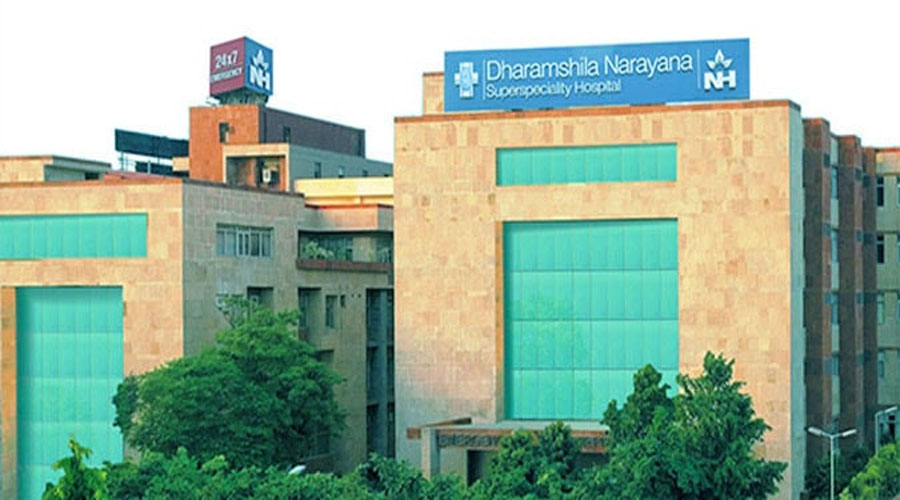
Dharamshila Narayana Superspeciality Hospital, New Delhi
For over two decades, Dharamshila Narayana Superspeciality Hospital (Earlier known as Dharamshila Hospital And Research Centre till 31.03.2017) at Vasundhara Enclave in Delhi-NCR region was at the forefront of cancer treatment. On 1st April 2017, the unit began its partnership with Narayana Health, one of India’s largest network of hospitals and heart centres and started operations as Dharamshila Narayana Superspeciality Hospital.


